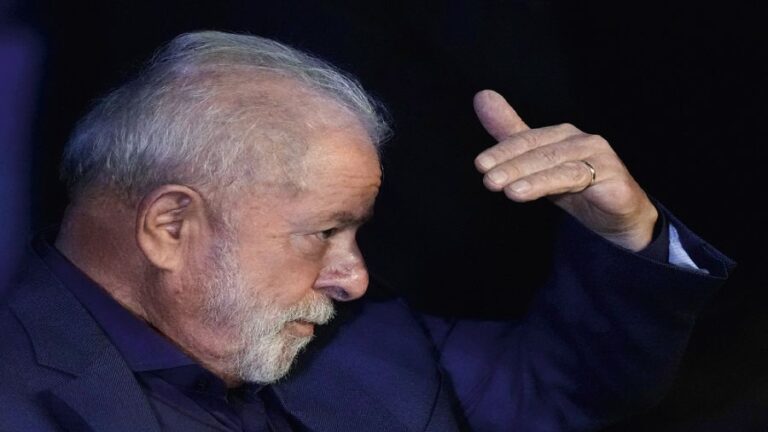Risk of Unleashing ‘Mad Dog’ Mattis
During the 2016 campaign, Donald Trump boasted that he would “bomb the hell out of ISIS,” but he also suggested a reversal of the “regime change” strategies of his recent predecessors. So, some peace voters thought Trump might actually be preferable to Hillary Clinton, who often came across as the more hawkish candidate.
However, in Trump’s near-half-year in office, he has slid more into line with the war hawks both by continuing to beat his chest over his own application of military force and by shifting control over many attack decisions to military field commanders and the Pentagon high command.
In mid-April, after a U.S. airstrike in Afghanistan, President Trump explained his thinking as he reveled in the first use of the massive “mother of all bombs” that was dropped on an Islamic State target in Afghanistan.
Trump said, “What I do is I authorize my military, we have the greatest military in the world, and they’ve done the job, as usual. We have given them total authorization, and that’s what they’re doing. Frankly, that’s why they’ve been so successful lately. If you look at what’s happened over the last eight weeks and compare that really to what has happened over the last eight years, you’ll see there is a tremendous difference.”
That bombing in Afghanistan followed Trump’s order to fire 59 Tomahawk missiles aimed at a Syrian government airfield that he alleged to be the launch point for an April 4 chemical weapons attack on the town of Khan Sheikhoun.
Besides the missile strike – for which Trump got no authorization from either Congress or the United Nations Security Council – U.S. warplanes bombed pro-government forces inside Syria for allegedly getting too close to U.S.-backed rebels and shot down a Syrian plane for the same reason. These attacks against Syrian government targets represented an escalation of U.S. participation in the six-year-old conflict. President Obama had limited direct U.S. attacks against ISIS positions inside Syria.
Meanwhile, the number of U.S. military personnel in the Middle East has been slowly but surely rising since Trump took office. Yet, these actions have not evoked much protest from the public or Congress and have even been praised by many as a sign of strength by Trump.
The Pentagon’s ‘Mad Dog’
Trump’s Secretary of Defense James Mattis, nicknamed “Mad Dog” from his days a Marine general, has a unique relationship with Trump. He reportedly dines alone frequently with the President and has served as the point man for those acquiring “total authorization” to launch attacks. Due to his combination of access to Trump and Trump’s readiness to cede decisions to the Pentagon, Mattis has an unprecedented ability as Secretary of Defense to elevate the U.S. military’s role in world affairs.
Although Mattis intentionally limits his contact with the public and the press, some of his past statements reveal his mindset. In Iraq in 2003, Mattis coached arriving Marines, “Be polite, be professional, but have a plan to kill everybody you meet.” And in 2005, the man who has been unleashed by the President said, “You go into Afghanistan, you got guys who slap women around for five years because they didn’t wear a veil. You know, guys like that ain’t got no manhood left anyway. So it’s a hell of a lot of fun to shoot them. Actually it’s quite fun to fight them, you know. It’s a hell of a hoot. It’s fun to shoot some people. I’ll be right up there with you. I like brawling.”
The man who likes “brawling” is also the first Secretary of Defense since George Marshall in 1947 confirmed with a waiver of the National Security Act. By law, members of the armed forces must have a seven-year waiting period before becoming Defense Secretary. The reason for the legislation was to respect civilian control of the military and to keep those favoring military solutions — as an early recourse — away from the levers for taking the country to war. The Congress after World War II attempted to prevent the very situation that is now unfolding.
In George Marshall’s case, the waiver recognized his deep experience in statesmanship, since he served as Secretary of State and directed the Marshall Plan for rebuilding Europe before he became Defense Secretary. “Mad Dog” Mattis received his waiver without mention of his diplomatic abilities. Yet, the waiver for Mattis easily passed the Senate, 81-17, and the House, 235-188. He was then confirmed by the Senate in a 99-1 vote.
Leading what little debate there was over the Mattis waiver and confirmation, Sen. Kirsten Gillibrand, D-New York, said, “While I deeply respect General Mattis’s service, I will oppose a waiver. Civilian control of our military is a fundamental principle of American democracy, and I will not vote for an exception to this rule.”
Worked Up Over Russia
In his confirmation hearings, Mad Dog supported what in Official Washington are the most conventional perspectives, including referring to Russia as a “principal threat.”
The sentiment of the vast majority of Congress was summed up by Tim Kaine, D-Virginia, a member of both the Senate Armed Services and Foreign Relations Committees, saying “In his testimony before the Senate Armed Services Committee yesterday, he demonstrated a clear-eyed view of our current national security environment and a deep appreciation for the challenges facing U.S. service members and their families.”
Kaine, who was Hillary Clinton’s vice-presidential running mate, added, “I believe he is well-prepared to lead the Department of Defense and provide the incoming administration with wise and strategic counsel on matters of national security.”
Kaine’s comments highlight a bizarre twist in the Trump presidency: the first Cabinet member approved by the Senate became an important neoconservative plant inside the administration despite Trump’s rhetorical rejection of neocon “regime change” policies. The incoherence of Trump’s emerging foreign policy appears to be directly related to Mattis and the interventionists – both neocons and liberals – who supported his ascent.
With Mattis at the Pentagon’s helm, the Trump administration has rapidly shifted toward a military dynamic, taking aim at many of the old neocon targets, including Syria and Iran. Mattis’s combative perspective seems to be at the core of these policies although – as a military officer – he does recognize the realities of war.
In late May, Mattis gave a rare interview to CBS’s Face The Nation. Speaking about North Korea, he declared that the conflict could turn “catastrophic” and “would be probably the worst kind of fighting in most people’s lifetimes.”
In early June, Mattis went before the Senate Armed Services Committee to make his case on the need for more military resources. Significantly, he requested more money for an increase of troops that he claims will check the Taliban in Afghanistan.
His comments overtly revealed his disdain for the legislative branch, citing inadequate funding as a chief cause of the military’s problems, having “blocked new programs, prevented service growth, stalled industry initiative, and placed troops at greater risk.”
Since 2001, the Afghan War has cost hundreds of billions of dollars with over 2,000 deaths of U.S. soldiers and civilian casualties in the tens of thousands. With this in mind, Mattis’s complaints raise more questions about his objectives and what’s really achievable. Yet, Official Washington’s elite opinion circles regard his proposed escalation and his money requests as serious and rational.
But at least Mattis doesn’t sugarcoat prospects for war in the “cakewalk” terms favored by some neocons. Shortly after his Senate testimony, Mattis appeared before the House Appropriations Committee and described a war scenario with North Korea:
“I would suggest that we will win. It will be a war more serious in terms of human suffering than anything we’ve seen since 1953. It will involve the massive shelling of an ally’s capital, which is one of the most densely packed cities on earth,” referring to Seoul, South Korea, with a population of 25 million.
“It would be a war that fundamentally we don’t want,” Mattis said, but “we would win at great cost.”
Mattis added that because the threat and consequences were so great, he and President Trump, along with Secretary of State Rex Tillerson, were considering non-military options. He added, “We’re exhausting all possible diplomatic efforts in this regard.”
Hammering a Nail
But there is an old saying that if all you have is a hammer, every problem looks like a nail. And, that is a danger if international policy is deeply influenced by a hard-charging Marine general, especially with an inexperienced President prone to accepting simple and direct “solutions.”
In the wake of Trump’s meeting on Friday with Russian President Vladimir Putin, the real question becomes whether Putin’s more complex understanding of the world’s problems will influence Trump on flashpoints such as Syria, Iran, Ukraine and North Korea.
Or put somewhat differently, will Trump heed the inclinations of Secretary of State Tillerson, the former Exxon chief executive officer known for international wheeling-and-dealing, or will Trump lean toward Mattis and his readiness to mix it up militarily in places like Afghanistan, Syria and possibly even Ukraine?
The last thing that the neoconservatives and the liberal interventionists want is accommodation and compromise on some of these high-profile issues, which might envision a negotiated settlement in Syria that doesn’t result in Bashar al-Assad’s ouster, or a peace deal in Ukraine that doesn’t force Crimea back under the control of Ukraine, or an arrangement in Europe that lowers tensions with Russia.
Resolutions of these issues would not serve the interests of the Military-Industrial Complex well, nor those of Official Washington’s think tanks that rely on the largesse of military contractors and provide comfortable salaries for many of the key neocons and liberal hawks.
Those interests would be best served if “Mad Dog” Mattis is let off the leash as often as possible, if worldwide conflicts escalate, and if the Pentagon budget continues to swell. If that happens, Trump will not be the only one responsible; you can blame Congress for its readiness to sacrifice the principle of civilian control over the military to an aggressive military man.
The shallow compliments showered upon men like Mattis are symptoms of a country blindly embracing an egotistical and militaristic mindset.
By David Marks
Source: Consortium News







